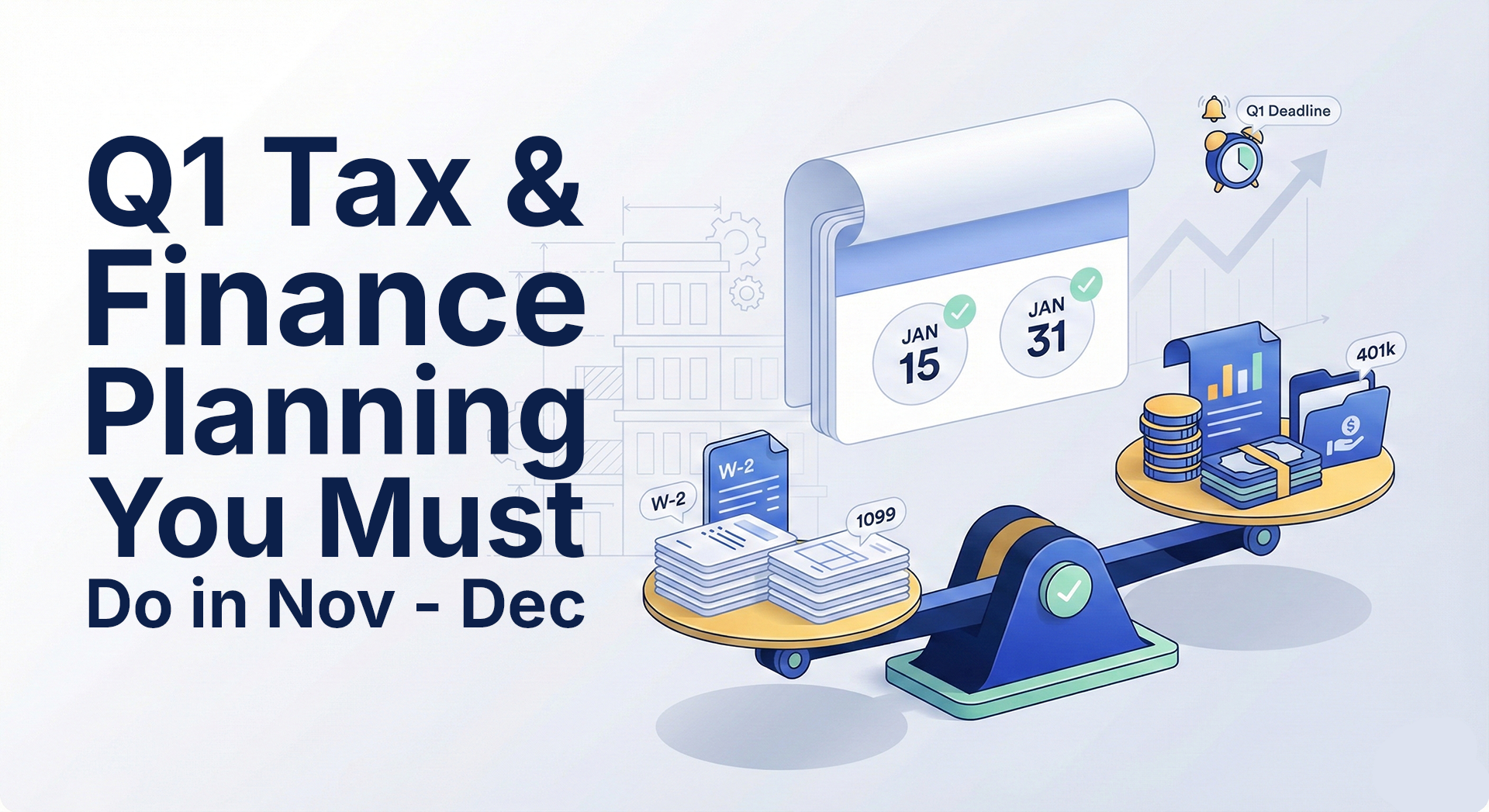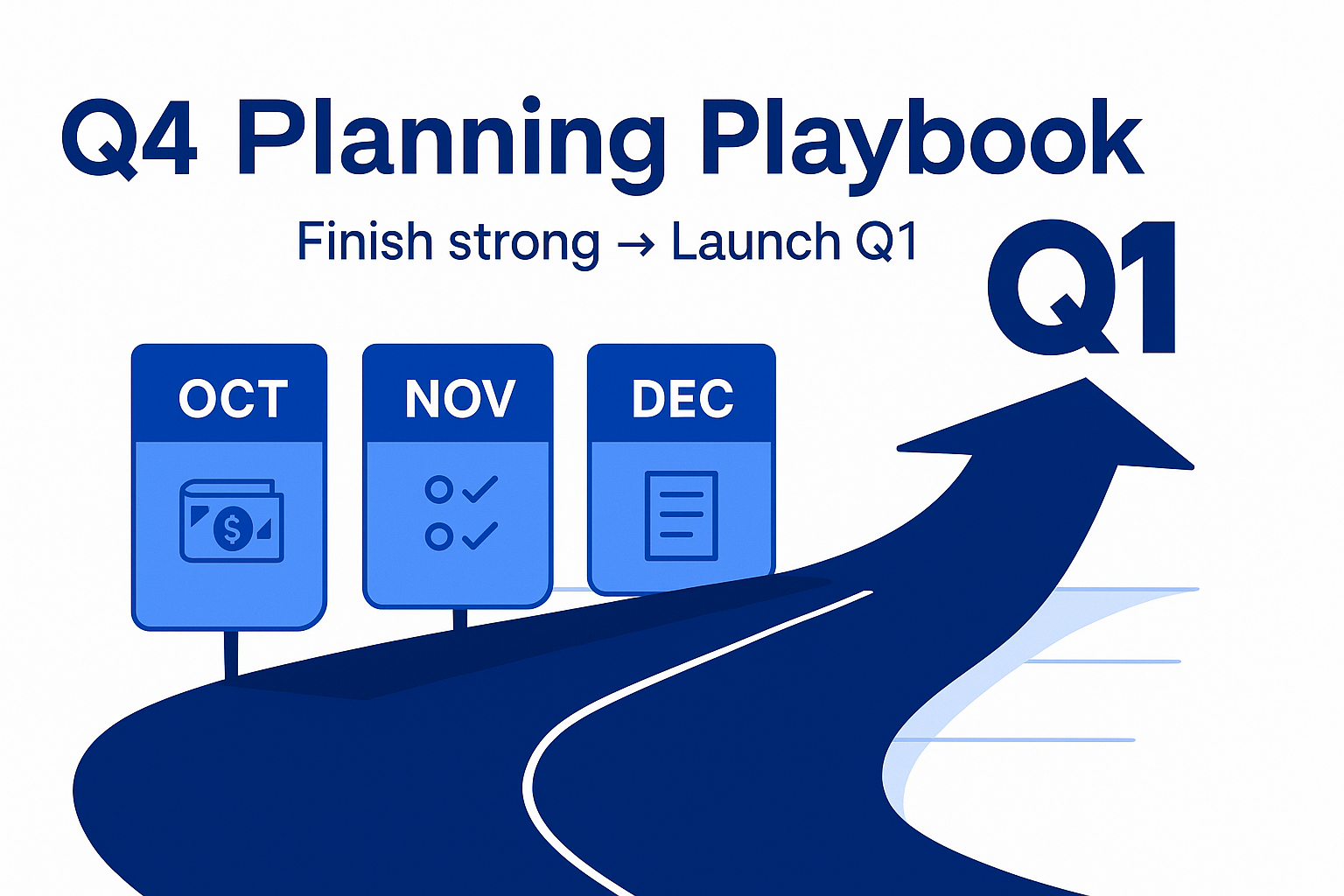Unified CFO strategy, tax planning, and accounting that grows with you.
A poorly structured business only bogs you down. Obtain clarity so you can focus on creating wealth and achieving personal freedom.
We believe that enduring businesses are built by reliable teams that deeply care about the people they work with and the businesses they serve.
By walking alongside our partners, we remove the financial guesswork of when to invest in the right opportunities, enabling you to dedicate your invaluable time and energy in business areas that matter most to you.
01
You set your business and personal goals... we listen.02
Plan and optimizie for the long-term.03
What’s next?

Quick summary (for busy founders) Why founders get burned in January (and how to avoid it) January feels far away in November. Then the clock flips, Slack is on fire, and you’re suddenly “prioritizing” a dozen immovable deadlines. The fix isn’t heroic energy; it’s calendar math and front-loading. Think of Nov – Dec as your Q1 pre-season: you install the playbook, test the gear, and set your starting lineup. When the whistle blows in January, you’re executing—not scrambling. CleverProfits POV: We treat November as your Operational Year-End Sprint. Accounting, payroll, tax, and CFO planning sync into one checklist so nothing

A practical, plain-English guide to depreciation for small businesses: bonus depreciation, Section 179, business vehicles, rental property schedules, cost segregation, and the de minimis safe harbor plus when to time deductions for maximum tax savings. TL;DR (for busy founders) Why depreciation isn’t scary (and why it matters to profits) Depreciation simply recognizes that business stuff gets older, and the IRS lets you deduct that loss of value over time. If you feel overwhelmed by the rules, you’re not alone; there are a lot of them. This guide distills what small and midsize business owners ask us most often so you

Q4 isn’t just the end of the year—it’s the most leverage‑packed 90 days on your calendar. Decisions you make between October and December determine your tax bill, your cash runway, your momentum into Q1, and—most importantly—how intentionally you grow in the next 12 months. This playbook breaks down the planning and strategy moves that matter in Q4, how they connect to CleverProfits’ core services (Fractional CFO, Accounting & Bookkeeping, Tax Planning, and Tax Filing), and a step‑by‑step implementation roadmap you can execute starting today. TL;DR Want a Q4 sprint tailored to your numbers? Book a call with a CleverProfits CFO